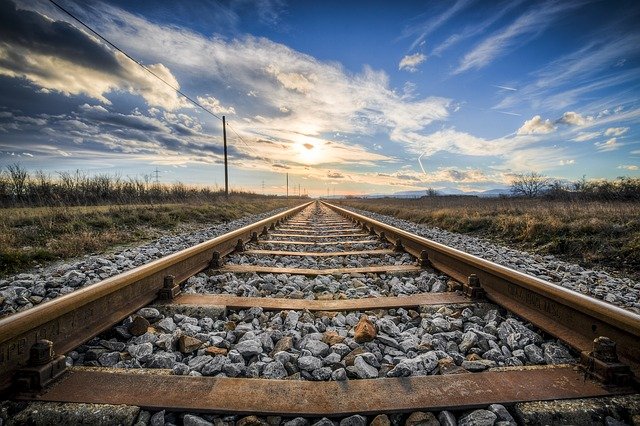Monday April 3, the rail line between Woodville and Hastings will reopen to trains. A temporary rail and container terminal has been established in Hastings at the Team Global Express freight depot, allowing import and export cargoes to be trucked to and from Napier Port.
Reopening the rail line to Hastings is a significant milestone in Hawke’s Bay’s cyclone recovery and will help move cargo to and from the region’s trade gateway, Napier Port.
KiwiRail chief executive Peter Reidy says “Like many roads, businesses and homes in Hawke’s Bay, the rail network was badly damaged during Cyclone Gabrielle. Our track teams have been working hard over recent weeks to repair the 130km of damaged rail line, including repairing flood-damaged rail bridges, so it could open to Hastings.”
“The rail network is a crucial part of Hawkes Bay’s supply chain, with around 350 wagons worth of goods moved in and out of the region each week. Despite the emergency, cargo has to keep moving, with much of it currently going by road.”
He says reopening the line to Hastings is an important milestone in the region’s recovery.
“It supports NZ’s vital and productive export economy to have the most efficient and cost-effective means to reach the port and final domestic or international destination. It will allow us to resume moving freight to and from Hastings and enable most of the distance to Napier Port to be covered by rail.”
“With trains running again from 3 April I urge communities across the southern Hawke’s Bay to be safe and take care around rail lines and crossings. Always expect trains at any time, from either direction.” says Peter.
Napier Port chief executive Todd Dawson says the re-opening of the main rail line through to Hastings is welcome.
“It’s another positive step forward in the region’s recovery efforts. Napier Port and other Hawke’s Bay businesses have import and export cargo that flows through to the central and lower North Island. Getting rail back on track is a good result.”
He says cargo normally transported to Napier Port via rail was currently being transported via road, and producers were deploying a number of measures to alleviate congestion and pressure on roads, including staggering departure and arrival times through to the port.
He estimated 30 return truck trips per day would be likely between the temporary rail and container terminal in Hastings through to Napier Port and acknowledges the immense effort by both KiwiRail and Waka Kotahi in repairing the road and rail network through to Hawke’s Bay.
“The cyclone has highlighted more than ever the importance of resilient road and rail connections between regions. Not only for the movement of people, and transporting goods and supplies for local use, but it’s critical for an export economy like New Zealand. We need to ensure primary sector producers, who earn a significant proportion of the country’s income, have reliable, efficient landside connections to international gateways like Napier Port.”
KiwiRail usually carries imported and exported cargo – including chilled and frozen meat, wood products such as logs, pulp and timber as well as food products and imported machinery and consumables used for the manufacture of goods – throughout the North Island, to and from Napier Port.
While the line to Hastings is open, it will take time to reopen the sections between Hastings and Napier Port.
The 20km stretch of line between Hastings and Napier Port was badly damaged in the floods, including the Waitangi rail bridge, which lost spans and a number of concrete piers. Line repairs are underway but it is expected to be a number of months before this section of the line can be reopened.
The Napier-Wairoa section experienced major damage in Eskdale and up the Esk Valley to Tutira. KiwiRail is still working to assess the damage and is unable to estimate how long it will be to re-establish this connection through to Wairoa.
“One of the opportunities we now have is to future-proof and rebuild our transport infrastructure in a way that is planned and coordinated between our regions, with road, rail and ports connected in the most efficient, cost-effective ways.” says Todd.



